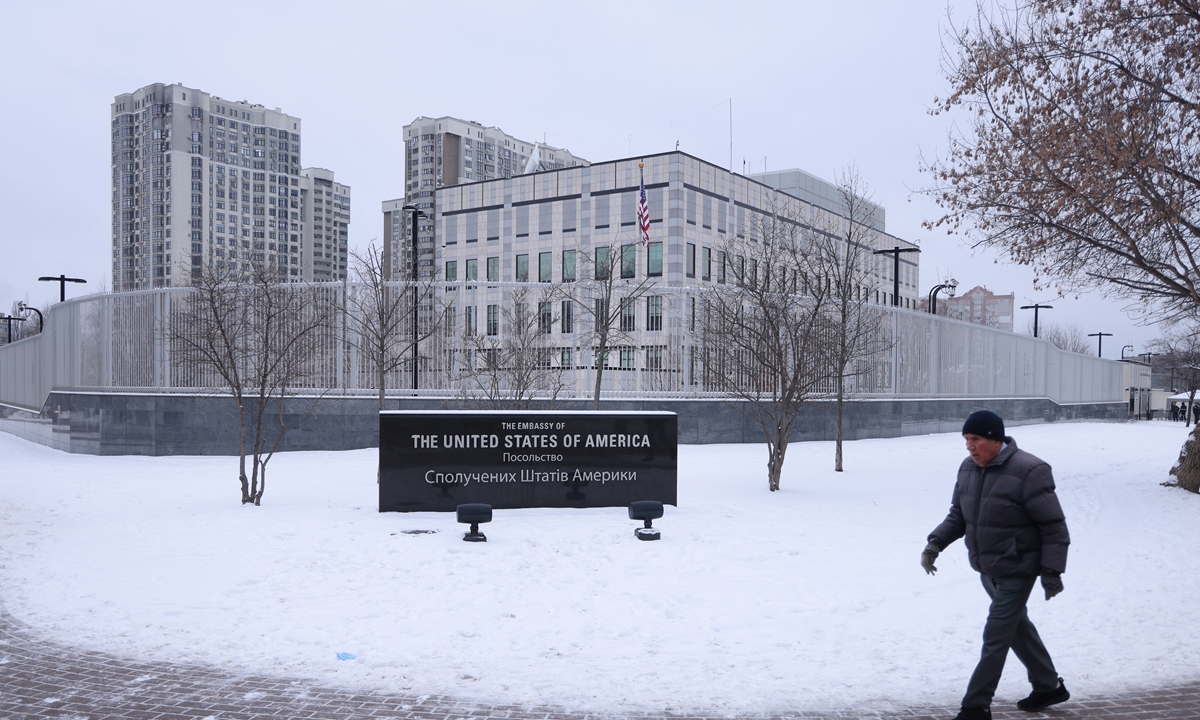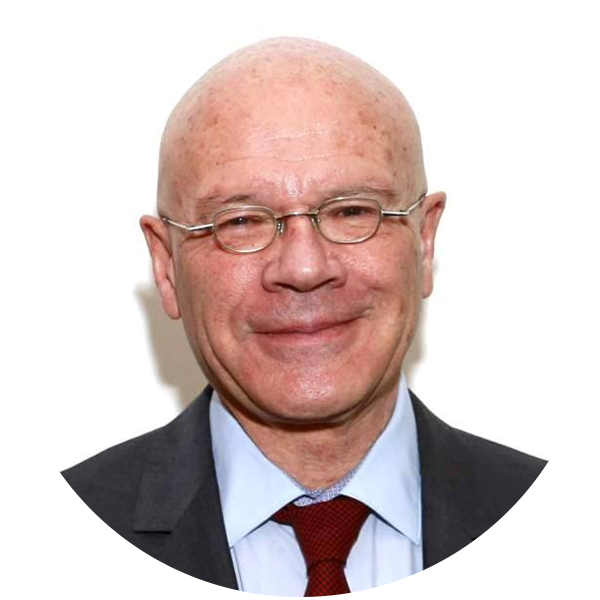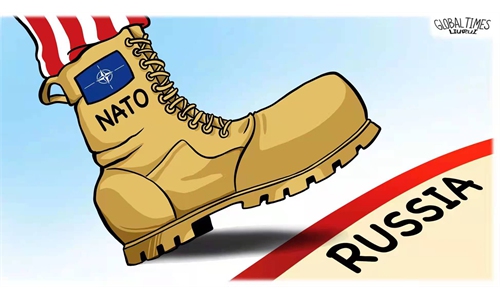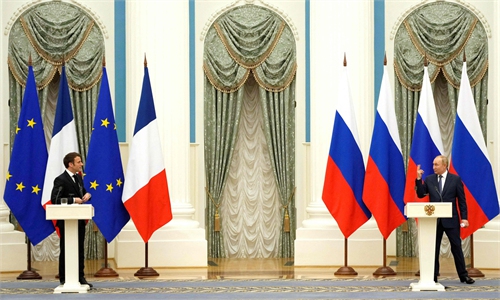In Ukraine crisis, US finds itself in a position of permanent overreach: Martin Jacques

A view of the US Embassy on January 24, 2022 in Kiev, Ukraine. Photo: VCG
Let us travel back to 1991. The implosion of the Soviet Union. The end of the Cold War. The triumph of the United States. The implosion was greeted by the West as offering boundless opportunities. Anything was now possible. The world could be remade in the West's own image. The constraints of the previous four decades disappeared. There was much talk of a New World Order. This was the unipolar moment: America had no rivals, it bestrode the world stage, it was no longer subject to the forces of gravity. Actually, if truth be told, it was a dangerous moment for America. Hubris went to its head, world domination beckoned. We can date the beginning of America's rapid decline, now so rampant and obvious, from this moment.America was to make two huge mistakes. In so doing, it hugely over-estimated the meaning of its victory in the Cold War. First, it seriously believed that it could remake the world in its own interests, that its victory in the Cold War would usher in the beginning of a new American century. The neo-con philosophy that informed the presidency of George W. Bush led to two disastrous wars in Afghanistan and Iraq. They were classic examples of imperial overreach. Just 20 years after 1991, America was facing the prospect of a humiliating defeat in both wars. And, we might add, China was showing that, far from the world being unipolar, it was increasingly multi-polar. America, in its pomp and arrogance after the Cold War, had completely misread which way the world was moving.
The second huge mistake was how it treated Russia. This was a crucial moment. Would it view Russia as a defeated nation and treat it accordingly, or would it adopt a magnanimous approach, that of an enlightened and benevolent superpower. Alas, it chose the former. Russia was cut down to size, treated as a defeated nation, not a future partner to be nurtured and embraced. The map of Europe was steadily redrawn: The East European states chose membership in the European Union and NATO, and 15 former Soviet states, including Ukraine, became independent. Russia emerged from the implosion in 1991 with only half its previous population, three-quarters of its former territory and 41 percent of its economy. It was humiliated.
A key question was always going to be Ukraine, historically part of Russia. As Henry Kissinger wrote with great wisdom in 2014: "Far too often the Ukrainian issue is posed as a showdown: whether Ukraine joins the East or the West. But if Ukraine is to survive and thrive, it must not be either side's outpost against the other — it should function as a bridge between them." His advice was not heeded by the US or Europe. NATO was steadily expanded until it reached Russia's borders. It was only a matter of time before Ukraine too became a NATO member, thereby further extending NATO's border with Russia.
With Russia's military action against Ukraine, America's policy towards Russia has now unraveled. It was deeply misguided. The refusal of the West to accept that Russia had legitimate security concerns has proved fatal. The central plank of America's post-Cold War strategy now lies in tatters. We are back in a situation that resembles the one prior to 1989. The war dominates the news in Europe to the exclusion of almost everything else. The language is reminiscent of the Cold War. But, of course, this is not a return to the Cold War which cast such a huge shadow over the entire world. America is not what it once was, nor is Europe or Russia. The world has moved on. 2022 is not 1991. If at one time the West dominated the global agenda, today this is increasingly no longer the case.
Important though the Ukraine war unquestionably is, it is no longer the kind of overarching global event that it would have been three decades ago.
There is one rather important fact that speaks volumes about the changing times, something that could not conceivably have happened a decade ago, let alone in 1991. There is mounting pressure in Europe for China to play the role of mediator in the Ukraine war, which is a quintessentially European and Western event. A week ago, Chinese President Xi Jinping spoke to both French President Emmanuel Macron and German Chancellor Olaf Scholz during a video summit to discuss Ukraine. The EU foreign affairs chief Josep Borrell declared there is "no alternative" to China being the mediator. "We [Europeans] cannot be the mediators, that is clear… and it cannot be the US either. Who else? It has to be China." How the world has changed.
Biden, like Trump, has declared that America's priority is now the Indo-Pacific. But as the global hegemon that made two enormous mistakes when it thought it could do anything, America keeps getting dragged elsewhere; not long ago it was Afghanistan, now it is Ukraine. Where once the US was happy to be committed all over the world, now, as the declining hegemon, it finds itself in a position of permanent overreach because of its own mistakes.
The author was until recently a Senior Fellow at the Department of Politics and International Studies at Cambridge University. He is a Visiting Professor at the Institute of Modern International Relations at Tsinghua University and a Senior Fellow at the China Institute, Fudan University. Follow him on twitter @martjacques. opinion@globaltimes.com.cn



